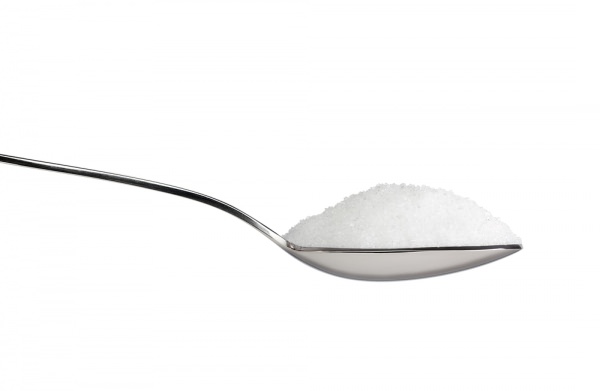If you haven’t already, now may be a good time to decrease your consumption of processed sugar. New research published in the journal Nature Medicine shows a link between processed sugar and cancer cells. Though it is not the first study to find a correlation between the two, this particular study is the first to suggest sugar as a way to detect cancer in the body.
The detection method, called glucose chemical exchange saturation transfer (glucoCEST), was discovered when scientists from University College London were experimenting with a new cancer detection method involving a unique form of magnetic resonance imaging (MRI). The scientists programmed an MRI scanner to look specifically for glucose, and found that cancer tumors lit up brightly when scanned in this way due to their high sugar content. “The method uses an injection of normal sugar and could offer a cheap, safe alternative to existing methods for detecting tumors, which require the injection of radioactive material,” said Dr. Simon Walker-Samuel, the lead researcher of the study in a release.
Using the glucoCEST method, only a small amount of sugar, about the same amount as found in half of a standard-sized chocolate bar, needs to be used to effectively identify tumors. Scientists hope that the new method will become a replacement for the current method of detection which uses low-dose radiation injections. Radiation is a known cause of cancer, which also makes it an effective tool in detecting cancerous tumors. Based on the results of the UCL study, sugar can now officially be added to list of cancer-detecting agents.
However, its inclusion as a means to detect cancer doesn’t mean sugar is a direct cause of the disease. Both the Mayo Clinic and the MD Anderson Cancer Center debunk the myths that sugar causes cancer and makes it grow faster. Instead, they state that all cells use sugar to grow and thrive, including cancer cells. The Mayo Clinic also suggests the misconception may come from positron emission tomography (PET) scans. A tracer, usually a form of glucose, is injected and all tissues in the body absorb the tracer. Tissues using more energy, like cancer cells, absorb greater amounts which could lead to the assumption that cancer cells grow and spread faster with sugar.
Also Read:
Coke Sponsors Wellness at BlogHer, Bloggers Unite in Protest

